featured
Congressional Committee Approves Federal Hemp THC Ban That Stakeholders Say Would Decimate Industry
Published
10 hours agoon

A powerful House committee has approved a spending bill containing provisions that hemp stakeholders say would devastate the industry, prohibiting most consumable cannabinoid products that were federally legalized during the first Trump administration.
The House Appropriations Committee passed the agriculture appropriations legislation in a 35-27 vote on Monday. It now heads to the Rules Committee to be prepared for floor consideration.
While the panel adopted a manager’s amendment to a report attached to the bill earlier this month that provided clarifying language stating that members did not intend to prohibit non-intoxicating cannabinoid products with “trace or insignificant amounts of THC,” the underlying bill went unchanged, despite the industry’s concerns about the proposal.
The large-scale measure covers a wide range of issues, but for hemp advocates and stakeholders, there’s one section of particular concern that would redefine the crop under federal statute in a way that would prohibit cannabis products containing any “quantifiable” amount of THC or “any other cannabinoids that have similar effects (or are marketed to have similar effects) on humans or animals” as THC.
Rep. Andy Harris (R-MD)—chair of the House Appropriations Subcommittee on Agriculture, Rural Development, Food and Drug Administration, and Related Agencies—championed the hemp ban, which he said “closes the loophole” in the 2018 Farm Bill allowing for consumable hemp products with THC that led to the proliferation of the market.
As many states have stepped in to curb these dangerous project products from reaching consumers, particularly children, it’s time for Congress to act to close this loophole while protecting industrial hemp industry,” Harris said this month. “Reports that the included language would destroy legitimate businesses are simply not true, and that’s clear to anyone closely reading the carefully drafted language that I believe threaded the needle.”
Despite Harris’s strong opposition to cannabis reform and criticism of intoxicating hemp products, his manager’s amendment to the report that the committee approved notably expresses the intent of the committee to take a more flexible regulatory approach to certain cannabis items.
“In determining the quantifiable amounts, the Committee does not intend for industrial or nonintoxicating hemp-derived cannabinoid products with trace or insignificant amounts of THC to be affected,” it says.
But the language in the bill itself would still effectively eliminate the most commonly marketed hemp products within the industry, as even non-intoxicating CBD items that are sold across the country typically contain trace amounts of THC. Under current law, those products are allowed if they contain no more than 0.3 percent THC by dry weight.
The proposed policy championed by Harris would drastically change that. It would instead maintain the legal status of “industrial hemp” under a revised definition that allows for the cultivation and sale of hemp grown for fiber, whole grain, oil, cake, nut, hull, microgreens or “other edible hemp leaf products intended for human consumption.”
The Congressional Research Service (CRS) released a report last week stating that the legislation would “effectively” prohibit hemp-derived cannabinoid products. Initially it said that such a ban would prevent the sale of CBD as well, but the CRS report was updated to exclude that language for reasons that are unclear.
An Appropriations Committee press release on Monday said the bill “supports the Trump Administration and mandate of the American people by…closing the hemp loophole that has resulted in the proliferation of unregulated intoxicating hemp products, including Delta-8 and hemp flower, being sold online and in gas stations across the country.”
The hemp language is largely consistent with appropriations and agriculture legislation that was introduced, but not ultimately enacted, under the last Congress.
Hemp industry stakeholders rallied against that proposal, an earlier version of which was also included in the base bill from the subcommittee last year. It’s virtually identical to a provision of the 2024 Farm Bill that was attached by a separate committee last May via an amendment from Rep. Mary Miller (R-IL), which was also not enacted into law.
There are some differences between the prior spending bill and this latest version for 2026, including a redefining of what constitutes a “quantifiable” amount of THC that’d be prohibited for hemp products.
It now says that a quantifiable amount is “based on substance, form, manufacture, or article (as determined by the Secretary of Health and Human Services in consultation with the Secretary of Agriculture),” whereas it was previously defined as an amount simply “determined by the Secretary in consultation with the Secretary of Health and Human Services.”
The proposed legislation also now specifies that the term hemp does not include “a drug that is the subject of an application approved under subsection (c) or (j) of section 505 of the Federal Food, Drug, and Cosmetic Act (21 U.S.C. 355),” which seems to carve out an exception for Food and Drug Administration- (FDA) approved drugs such Epidiolex, which is synthesized from CBD.
A leading alcohol industry association, meanwhile, has called on Congress to dial back language in the House spending bill that would ban most consumable hemp products, instead proposing to maintain the legalization of naturally derived cannabinoids from the crop and only prohibit synthetic items.
Wine & Spirits Wholesalers of America (WSWA) President and CEO Francis Creighton said in a press release that “proponents and opponents alike have agreed that this language amounts to a ban.”
“By pushing a rapidly evolving industry back into the shadows, Congress is creating even more chaos in the marketplace, undermining state initiatives and punishing responsible actors,” he said. “We urge the full House to reconsider this approach. States can regulate intoxicating products safely and effectively through systems that preserve consumer trust and public safety. It’s time for Congress to follow their lead, not override their authority.”
Members of WSWA also met with lawmakers and staffers in April to advocate for three key policy priorities that the group says is based on “sound principles of alcohol distribution.” They include banning synthetic THC, setting up a federal system for testing and labeling products and establishing state-level power to regulate retail sales.
Separately, key GOP congressional lawmakers—including one member who supports marijuana legalization—don’t seem especially concerned about provisions in the bill despite concern from stakeholders that it would put much of the hemp industry in jeopardy by banning most consumable products derived from the plant.
—
Marijuana Moment is tracking hundreds of cannabis, psychedelics and drug policy bills in state legislatures and Congress this year. Patreon supporters pledging at least $25/month get access to our interactive maps, charts and hearing calendar so they don’t miss any developments.![]()
Learn more about our marijuana bill tracker and become a supporter on Patreon to get access.
—
Jonathan Miller, general counsel of the U.S. Hemp Roundtable, told congressional lawmakers in April that the market is “begging” for federal regulations around cannabis products.
At the hearing, Rep. James Comer (R-KY) also inquired about FDA inaction around regulations, sarcastically asking if it’d require “a gazillion bureaucrats that work from home” to regulate cannabinoids such as CBD.
A report from Bloomberg Intelligence (BI) last year called cannabis a “significant threat” to the alcohol industry, citing survey data that suggests more people are using cannabis as a substitute for alcoholic beverages such a beer and wine.
Last November, meanwhile, a beer industry trade group put out a statement of guiding principles to address what it called “the proliferation of largely unregulated intoxicating hemp and cannabis products,” warning of risks to consumers and communities resulting from THC consumption.
Texas GOP Governor ‘Wants To Legalize Recreational Marijuana,’ Lieutenant Governor Claims
Photo courtesy of Kimzy Nanney.

Author: mscannabiz.com
MScannaBIZ for all you Mississippi Cannabis News and Information.
You may like
-


With Texas Hemp Ban Now Vetoed By Governor, Industry And Lawmakers Turn To Regulation
-
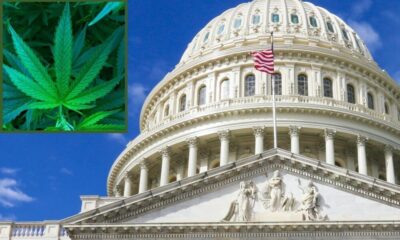

House To Vote On Letting VA Doctors Recommend Medical Marijuana To Military Veterans And Supporting Psychedelics Research
-


Montana Governor Rejects Bill To Let Tribes Negotiate Marijuana Regulations With State
-
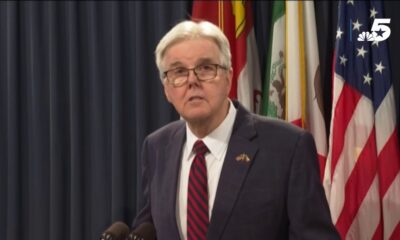

Texas Lt. Gov. puzzled by veto of THC ban, says Gov. Abbott wants to legalize marijuana – NBC 5 Dallas-Fort Worth
-


What strains would these queer icons smoke?
-
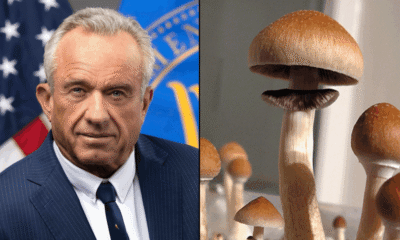

RFK Says Trump Administration Could Provide Psychedelic Therapy To Military Veterans ‘Within 12 Months’
featured
With Texas Hemp Ban Now Vetoed By Governor, Industry And Lawmakers Turn To Regulation
Published
23 minutes agoon
June 24, 2025
“Any new industry goes through ups and downs, but what we need from lawmakers is some kind of consistency.”
By Stephen Simpson, The Texas Tribune
With a ban off the table for now, Texas hemp industry leaders said they are amenable to state lawmakers imposing more regulations on their THC products, such as age restrictions on purchases and more testing of their products, but caution against ineffective government overreach.
“We were ecstatic, as you can imagine, that Abbott saw through Senate Bill 3 that it didn’t make sense scientifically or legally. We have always been an advocate for sensible and thoughtful regulation, and we look forward to working with lawmakers on this,” said Mark Bordas, executive director of the Texas Hemp Business Council.
Gov. Greg Abbott (R), just minutes before the veto deadline on Sunday, rejected Senate Bill 3, which would have banned consumable hemp products that contained any THC, including delta-8 and delta-9. Instead, he has called a special session beginning July 21 to determine how to regulate hemp-derived THC.
Abbott urged lawmakers in his veto to consider an approach similar to the way alcohol is regulated, recommending barring the sale and marketing of THC products to minors, requiring testing throughout the production and manufacturing process, allowing local governments to prohibit stores from selling THC products and providing law enforcement with additional funding to enforce the restrictions.
Faced with a ban, many hemp stakeholders, including retailers, growers and users, have championed regulations, but how they want them implemented varies across different parts of the industry. Some want stricter enforcement on retailers while others want freedom to grow the plant without worry, but, all agree that the state should raise the age to purchase THC products to 21. Currently, there’s no age restriction in law, but most retailers prohibit minors younger than 18 from purchasing THC products.
“While many advocate for regulations, it’s important to define what good regulations actually mean,” said Sydney Torabi, co-founder of Austin-based cannabis business Restart CBD.
More regulations needed
Kyle Bingham, a hemp grower in the South Plains and president of the Texas Hemp Growers Association, said he woke up Monday morning shocked to learn about the veto but pleased that he agrees with most of Abbott’s suggestions for regulations.
“I think it’s a good idea,” he said. “Let’s regulate cannabinoids like alcohol.”
Texas already has several regulations in place for the hemp industry, under the Texas Hemp Farming Act, which imposes THC limits (although producers have found loopholes to circumvent those caps), requires comprehensive testing, mandates licensing, stipulates labeling requirements and provides for the issuance of accessible certificates of analysis. But, Bordas said there needs to be more enforcement of those laws.
“The state currently has four full-time employees trying to police over 8,000 licensees trying to sell the product, so it stands to reason the state needs to commit to enforcing the laws and regulations already on the books,” said Bordas.
Bordas said more can be done to control the market. He supports raising the age to purchase THC to 21 and measures to keep the products away from children, including preventing products to be sold within 1,000 feet of a school or church, implementing tamper-proof packaging and avoiding marketing strategies that are appealing to children.
Abbott proposed nearly 20 regulations for the hemp industry in his veto, including raising permit and registration fees for hemp high enough to support robust enforcement and testing by the Texas Alcoholic Beverage Commission, and posting warning and danger signs at any store selling these products.
“The Texas Alcoholic Beverage Commission is well equipped to do it,” Bingham said about adopting regulations similar to the alcohol industry. “[It] will allow for cleaner regulation that doesn’t put undue burden on the farmer.”
From a retail standpoint, Torabi said she would support raising licensing fees to filter out unscrupulous stores and gas stations, specifically those who cut corners or mislead consumers.
“These bad actors not only damage the reputation of responsible companies like RESTART, but also reinforce outdated stereotypes that THC and cannabis are harmful,” she said. “The reality is, it comes down to quality products and consumer education.”
Bingham said a critical piece to hemp regulation still missing from Abbott’s suggestions is more clarity on testing requirements, including what products must be tested for and the amount of THC that would be allowable.
“In short, until we have testing definitions, no bill will be enforceable. I see all these great things when it comes to limiting THC to minors, packaging requirements, a lot of things the industry needs, but without testing, we can’t enforce any of it,” he said.
Treating alcohol and hemp similarly
Bingham said that while the alcohol industry could be a great model for regulating hemp, some of Abbott’s suggestions shouldn’t apply to THC products. For example, alcohol products require a surgeon general’s warning about the risks it carries for pregnant women, and hemp-based foods that don’t contain significant amounts of THC shouldn’t need a similar label.
“I don’t think we need a THC warning label on hemp hearts and hemp seed oil,” he said.
Some regulations Abbott suggested are directly inspired by Prohibition-era laws that don’t necessarily make sense for THC products, stakeholders say, including limiting sales between 10 a.m. and 9 p.m. and prohibiting sales on Sundays.
Retailers also caution against limiting the number of purchases that can be made in a given period and enforcing further limits on the amount of THC in a product, which could harm those who use the products for health purposes.
“One area of concern is the proposed cap on THC dosing per gummy or per package. Many of our customers rely on higher THC doses to manage serious conditions such as chronic pain and PTSD,” Torabi said. “It’s important to recognize that this isn’t just about recreational use; THC serves as a critical medicine for many Texans. Arbitrary limits could prevent patients from accessing the relief they genuinely need.”
Abbott also suggested making the public consumption of THC products and an open container in a car a crime similar to alcohol. Torabi said she would like more consideration before restricting THC consumption similar to alcohol since both substances have different intended effects.
“There’s been a significant shift toward non-alcoholic consumption in Texas and across the country, with many restaurants now offering THC and CBD beverages as alternatives,” she said. “Allowing adults the freedom to choose their preferred beverage, while also supporting local business, seems both reasonable and beneficial to the economy.”
In need of stability
Some states, like Florida, where Gov. Ron Desantis (R) also vetoed a hemp ban law, enacted age restrictions while others have restricted product potency.
Bingham said that he welcomes regulations because they will bring stability to the industry and allow the rest of Texas to truly see the benefits of THC.
“Any new industry goes through ups and downs, but what we need from lawmakers is some kind of consistency,” he said.
Some hemp industry leaders have suggested various initiatives to showcase the benefits of THC, such as research programs and education for lawmakers, before embarking on over-regulation.
“Right now, most regulations is based in fear mongering, confusion and chasing headlines instead of evidence,” said Chris Karazin, chief executive officer for Carolindica, an online hemp company from North Carolina. The company hopes other states follow Texas’ lead in creating more regulations instead of banning THC. “If states and federal governments invested in cannabinoid research, especially around dosage, impairment and health outcomes, we’d be in a much stronger position to create fair, common sense hemp policy.”
Bordas hopes, though, that the ultimate proof that THC is safe comes from the general public.
“As more members of the Legislature become familiar with the product along with the social media campaigns of people who use hemp and do it for various reasons with no adverse effects, it will make it mainstream enough that the fear factor will go away,” he said.
This article originally appeared in The Texas Tribune at https://www.texastribune.org/2025/06/23/texas-hemp-regulations-age-restriction-enforcement-thc-sb-3/.
The Texas Tribune is a member-supported, nonpartisan newsroom informing and engaging Texans on state politics and policy. Learn more at texastribune.org.
Congressional Committee Approves Federal Hemp THC Ban That Stakeholders Say Would Decimate Industry
Photo courtesy of Brendan Cleak.

Author: mscannabiz.com
MScannaBIZ for all you Mississippi Cannabis News and Information.
featured
House To Vote On Letting VA Doctors Recommend Medical Marijuana To Military Veterans And Supporting Psychedelics Research
Published
2 hours agoon
June 24, 2025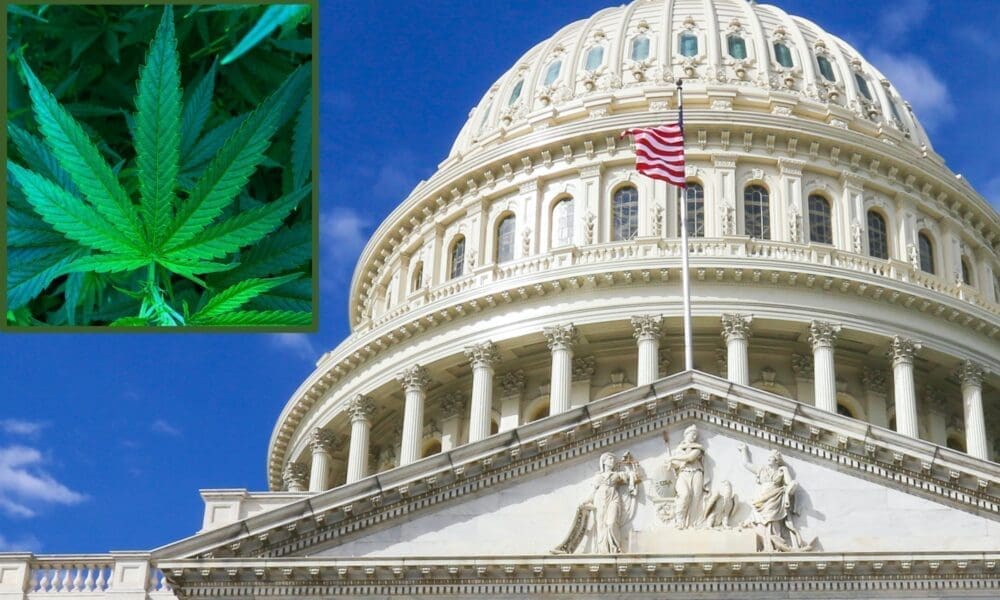
The U.S. House of Representatives is set to consider amendments to a spending bill this week that would authorize U.S. Department of Veterans Affairs (VA) doctors to issue medical marijuana recommendations to military veterans and support psychedelics research and access.
The House Rules Committee on Monday made the cannabis and psychedelics amendments in order for floor consideration for possible attachment to the Military Construction, Veterans Affairs and Related Agencies (MilConVA) appropriations legislation.
One of the proposals from Reps. Brian Mast (R-FL) and Dave Joyce (R-OH)—who are both co-chairs of the Congressional Cannabis Caucus—would increase veterans’ access to state medical marijuana programs and eliminate a current VA directive barring the department’s doctors from issuing cannabis recommendations.
Here’s the text of the amendment:
“None of the funds appropriated or otherwise made available to the Department of Veterans Affairs in this Act may be used to enforce Veterans Health Directive 1315 as it relates to—
(1) the policy stating that ‘VHA providers are prohibited from completing forms or registering Veterans for participation in a State-approved marijuana program’;
(2) the directive for the ‘Deputy Under Secretary for Health for Operations and Management’ to ensure that ‘medical facility Directors are aware that it is VHA policy for providers to assess Veteran use of marijuana but providers are prohibited from recommending, making referrals to or completing paperwork for Veteran participation in State marijuana programs’; and
(3) the directive for the ‘VA Medical Facility Director’ to ensure that ‘VA facility staff are aware of the following’ ‘[t]he prohibition recommending, making referrals to or completing forms and registering Veterans for participation in State-approved marijuana programs’.”
“I’m not a doctor. I wouldn’t presume to tell people when they should consider cannabis for medical purposes,” Mast said before the Rules Committee on Monday, recounting the long road to recovery from his own war wounds that he suffered in Afghanistan.
“I woke up in a hospital called Walter Reed one day, and I can tell you that when I woke up in that hospital—missing two legs and a finger—I woke up on a laundry list of narcotics and medications, things I had never been on in my life,” he said, adding that he went through a “gamut” of withdrawal symptoms from the opioids he was given.
“The point of this is to say there are alternatives out there,” he said. “I wouldn’t say when those alternatives are appropriate, but I know that it is appropriate if somebody is getting all of their medical health from the Department of Veterans Affairs, that they be able to have that discussion about what they may be considering for their health with that person that is providing their health care.”
“If they can’t trust that they can have at least that discussion with that person providing their health care, then the VA is failing them, because one way or another, they’re going to look into a path that they’re considering. It would be much better if they look into that path under the directive of their doctor. And so that’s what my amendment is about…just making sure that those doctors have the ability to not be prohibited from speaking to those veterans about something that they may be otherwise considering through legal programs in their state.”
The provision is based on a standalone bill, the Veterans Equal Access Act, which Mast refiled in February. That marked one of the latest attempt to enact the measure that’s enjoyed bipartisan support over recent sessions but has yet to become law. It’s advanced several times in committee and on the floor but has yet to be enacted into law.
In past years, both the House and Senate have included provisions in their respective MilConVA measures that would permit VA doctors to make the medical cannabis recommendations, but they have never been enacted into law.
Another MilConVA provision being considered along with the House bill this year, from Reps. Lou Correa (D-CA) and Jack Bergman (R-MI), would encourage VA to support research into the benefits of psychedelics in treating medical conditions commonly affecting military veterans.
Here’s the summary of the amendment:
“Increases and decreases funding for the Medical and Prosthetic Research account at the Department of Veterans Affairs to direct the Department to evaluate and make recommendations on changes that would need to be made to its existing healthcare infrastructure to integrate approved psychedelic therapies into veterans’ care options for conditions such as PTSD and substance use disorders. This would include the need for supporting the development and dissemination of training and supervision programs for providers and pilot programs to inform clinical implementation of these therapies.”
“We lose up to 20 veterans a day to suicide. One is too many. Our nation’s veterans continue to suffer tragic rates of suicide and opioid overdose deaths after they return home,” Correa said in a press release. “While the VA has finally begun to study the impact of breakthrough therapies like psychedelics on veterans’ invisible wounds, the time is now to begin preparing for how these therapies will one-day be distributed to ensure the health and safety of our nation’s most valiant warriors.”
“It’s my hope that my colleagues—Democrat and Republican alike—will join us in getting this amendment signed into law and kickstart our work to get our veterans the care they deserve,” he said.
Bergman, who along with Correa is a co-chair of the Psychedelics Advancing Therapies (PATH) Caucus, added that “after serving our country with honor, many of our warriors return home only to face a different kind of battle.”
“I’ve spent years advocating for solutions to meet Veterans where they actually are, including exploring innovative therapies that show promise for treating the invisible wounds of war,” he said. “We owe it to our Veterans to create more options for help and less hoops to jump through – they shouldn’t come home to a new fight.”
The House on Tuesday approved the rule under which the spending legislation will be considered, but did not begin taking up amendments, which is expected later this week.
There were notably fewer cannabis-related amendments filed for the MilConVA bill this year compared to past sessions, though the Rules Committee has previously rejected several of those other Democratic-led reforms such as blocking cannabis testing for federal job applicants in states that have enacted legalization.
—
Marijuana Moment is tracking hundreds of cannabis, psychedelics and drug policy bills in state legislatures and Congress this year. Patreon supporters pledging at least $25/month get access to our interactive maps, charts and hearing calendar so they don’t miss any developments.![]()
Learn more about our marijuana bill tracker and become a supporter on Patreon to get access.
—
Meanwhile, on Monday, the House Appropriations Committee approved a separate spending bill containing provisions that hemp stakeholders say would devastate the industry, prohibiting most consumable cannabinoid products that were federally legalized during the first Trump administration.
Also, earlier this month, Congress passed a bill that is primarily focused on permanently banning analogues of fentanyl, though it also contains provisions that one GOP lawmaker said would remove barriers to conducting research into the risks and benefits of marijuana and other Schedule I drugs.
Congressional Committee Approves Federal Hemp THC Ban That Stakeholders Say Would Decimate Industry

Author: mscannabiz.com
MScannaBIZ for all you Mississippi Cannabis News and Information.
featured
Montana Governor Rejects Bill To Let Tribes Negotiate Marijuana Regulations With State
Published
3 hours agoon
June 24, 2025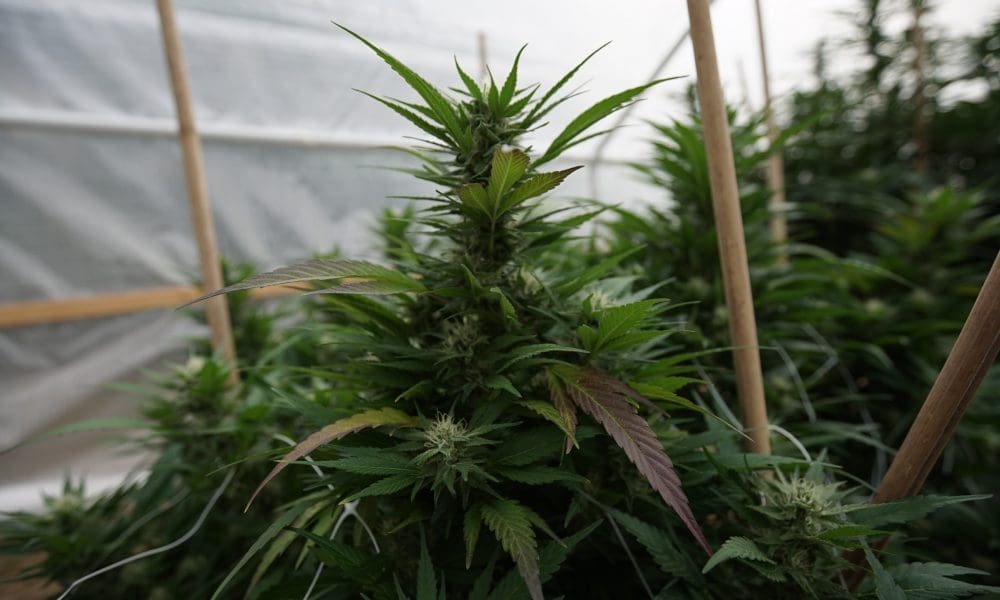
“There’s tribes in the state that are wanting to move forward with manufacturing or processing, testing, distribution.”
By Alexander Lekhtman, Filter
A Montana proposal that would have allowed tribal nations to negotiate cannabis regulation individually will not be enacted this session. Gov. Greg Gianforte (R) vetoed the bill on June 19, calling it “unnecessary and duplicative.”
House Bill 952 sought to address cannabis industry barriers that tribes in Montana have faced since 2021, when the state enacted HB 701. That bill limits each tribe’s licensed cannabis operations to a single location, no more than 1,000 square feet and at least 150 miles outside reservation boundaries.
HB 952 would have removed these restrictions and instead authorized each tribe to work out their own regulatory terms with the state, tailored to their own needs. It was modeled after cannabis compacts used by federally recognized Native American tribes in Washington state, according to the Montana Free Press.
“While I appreciate the intentions of the bill sponsor, [regulatory] authority already exists under the State-Tribal Cooperative Agreements Act,” Gianforte stated in a June 20 letter explaining his veto. “I also have serious concerns about the bill’s potential impact on tribal sovereignty and self-determination, as well as the government-to-government relationship between the State of Montana and tribal nations. By channeling negotiations through a new statutory process, House Bill 952 may constrain the scope and flexibility of negotiations, introduce unnecessary bureaucratic hurdles and impose State priorities on tribal nations.”
The bill was sponsored by Representative Frank Smith (D), a longtime member of the Montana American Indian Caucus. This was the final legislative session before retirement for Smith, who first took office in 1999.
Montana began sales of adult-use cannabis in 2022. But the industry is divided into a patchwork of “green” counties, which voted in favor of legalization, and “red” counties, which voted against it. Sales in red counties are automatically banned, unless the county decides to opt in.
“There’s tribes in the state that are wanting to move forward with manufacturing or processing, testing, distribution,” Red Medicine LLC Cofounder Patrick Yawakie, who helped draft HB 952, told the Montana Free Press and ICT in a joint interview earlier in 2025. The bill would have ensured “that there’s an opportunity for them or clarity whenever they come to the table with the state to maintain compliance with state regulations.”
Yawakie said during that interview that the bill would also help tribes restrict access to cannabis, among those that wish to do so.
Gianforte has issued 42 vetoes this session, 10 of which are pending override, according to the Montana Free Press; a two-thirds majority is required to undertake that vote. One of the 10 vetoes that could potentially be overturned is for a bill for allocating cannabis tax revenue. As of June 19 the legislature is in the process of conducting the veto-override vote by mail, as the session has adjourned.
Gianforte’s vetoes have been largely budget-related, with steep cuts that he claimed in a June 20 letter are necessary to protect constituents from unnecessary spending.
“The budget I received from the legislature wasn’t as fiscally responsible as the one I proposed,” he wrote. “We have an obligation to be good stewards of taxpayer resources, regardless of whether we are in more promising fiscal times or more challenging fiscal times. Protecting taxpayers requires us to make tough decisions, prioritizing what is necessary over what would be nice to have.”
This article was originally published by Filter, an online magazine covering drug use, drug policy and human rights through a harm reduction lens. Follow Filter on Bluesky, X or Facebook, and sign up for its newsletter.
Photo courtesy of Chris Wallis // Side Pocket Images.

Author: mscannabiz.com
MScannaBIZ for all you Mississippi Cannabis News and Information.

With Texas Hemp Ban Now Vetoed By Governor, Industry And Lawmakers Turn To Regulation

House To Vote On Letting VA Doctors Recommend Medical Marijuana To Military Veterans And Supporting Psychedelics Research

Montana Governor Rejects Bill To Let Tribes Negotiate Marijuana Regulations With State

Texas Lt. Gov. puzzled by veto of THC ban, says Gov. Abbott wants to legalize marijuana – NBC 5 Dallas-Fort Worth

What strains would these queer icons smoke?

RFK Says Trump Administration Could Provide Psychedelic Therapy To Military Veterans ‘Within 12 Months’

Texas’s Dan Patrick vows to keep fighting against THC after Abbott vetoes ban

Why more seniors are turning to cannabis

Top Cannabis Brand Rove Launches in Maryland With Award-Winning Vapes

PHUKET XTRA: VIDEO: Medical cannabis law signed, Phuket’s noodle record, Corruption blamed for air crashes || June 24

Aurora Launches 2 High-Potency Flower Products in Poland

Pennsylvania Lawmakers Are ‘Getting Close’ On Marijuana Legalization Deal As Budget Deadline Looms, Key Senator Says

Tilray Medical Receives Italy’s 1st Authorization to Distribute Medical Cannabis Flower

Congressional Committee Approves Federal Hemp THC Ban That Stakeholders Say Would Decimate Industry

Cannabis users are too dangerous to have guns, Trump admin tells SCOTUS (Newsletter: June 24, 2025)

Social cannabis license rules could be finalized in July

Cannabis Law Now Podcast – Cannabis in the Show Me State: An Interview with BeLeaf Medical’s Mitch Meyers | Husch Blackwell LLP

Alabama Expected to Issue Medical Cannabis Dispensary Licenses Soon

Mississippi AG Says Intoxicating Hemp Products Are ‘Prohibited’ Under State Law

RAW Rolling Papers Founder Buys High Times

Delta In a Minute 6-19

MSO Nar Cannabis opens NJ dispensary near Philadelphia (photos)

7 In 10 US Voters Support Federal Marijuana Reform, And Nearly Half Would View Trump More Favorably If He Took Action, Poll Shows

Michigan Marijuana Shop’s Bigfoot Statue Is Creating Controversy, With Critics Saying It Appeals To Kids

Alert: Department of Cannabis Control updates data dashboards with full data for 2023

Connecticut Appoints The US’s First Cannabis Ombudsperson – Yes there is a pun in there and I’m Sure Erin Kirk Is Going To Hear It More Than Once!

5 best CBD creams of 2024 by Leafly

Free delta-9 gummies from Bay Smokes
New Study Analyzes the Effects of THCV, CBD on Weight Loss

EU initiative begins bid to open access to psychedelic therapies

Mississippi city official pleads guilty to selling fake CBD products

May 2024 Leafly HighLight: Pink Runtz strain

Curaleaf Start Process Of Getting Their Claws Into The UK’s National Health System – With Former MP (Resigned Today 30/5/24) As The Front Man

5 best autoflower seed banks of 2024 by Leafly

Horn Lake denies cannabis dispensary request to allow sale of drug paraphernalia and Sunday sales | News

Discover New York’s dankest cannabis brands [September 2024]

Press Release: CANNRA Calls for Farm Bill to Clarify Existing State Authority to Regulate Hemp Products

Nevada CCB to Accept Applications for Cannabis Establishments in White Pine County – “Only one cultivation and one production license will be awarded in White Pine County”

Local medical cannabis dispensary reacts to MSDH pulling Rapid Analytics License – WLBT

6 best CBD gummies of 2024 by Leafly

5 best THC drinks of 2024 by Leafly

The Daily Hit: October 2, 2024

5 best delta-9 THC gummies of 2024 by Leafly

People In This State Googled ‘Medical Marijuana’ The Most, Study Shows

Weekly Update: Monday, May 13, 2024 including, New Guide for Renewals & May Board meeting application deadline

Thailand: Pro-cannabis advocates rally ahead of the government’s plan to recriminalize the plant

PRESS RELEASE : Justice Department Submits Proposed Regulation to Reschedule Marijuana

Press Release: May 9, STIIIZY and Healing Urban Barrios hosted an Expungement Clinic & Second Chance Resource Fair
Trending
-

 California Cannabis Updates1 year ago
California Cannabis Updates1 year agoAlert: Department of Cannabis Control updates data dashboards with full data for 2023
-

 Breaking News1 year ago
Breaking News1 year agoConnecticut Appoints The US’s First Cannabis Ombudsperson – Yes there is a pun in there and I’m Sure Erin Kirk Is Going To Hear It More Than Once!
-

 best list11 months ago
best list11 months ago5 best CBD creams of 2024 by Leafly
-

 Bay Smokes12 months ago
Bay Smokes12 months agoFree delta-9 gummies from Bay Smokes
-

 cbd1 year ago
cbd1 year agoNew Study Analyzes the Effects of THCV, CBD on Weight Loss
-

 Business9 months ago
Business9 months agoEU initiative begins bid to open access to psychedelic therapies
-

 Mississippi Cannabis News1 year ago
Mississippi Cannabis News1 year agoMississippi city official pleads guilty to selling fake CBD products
-

 California1 year ago
California1 year agoMay 2024 Leafly HighLight: Pink Runtz strain

